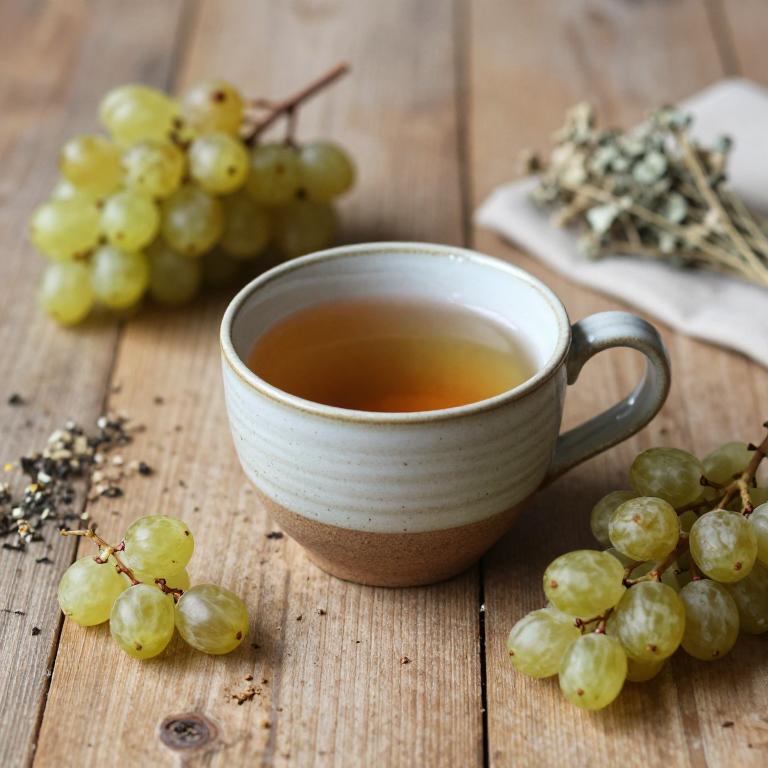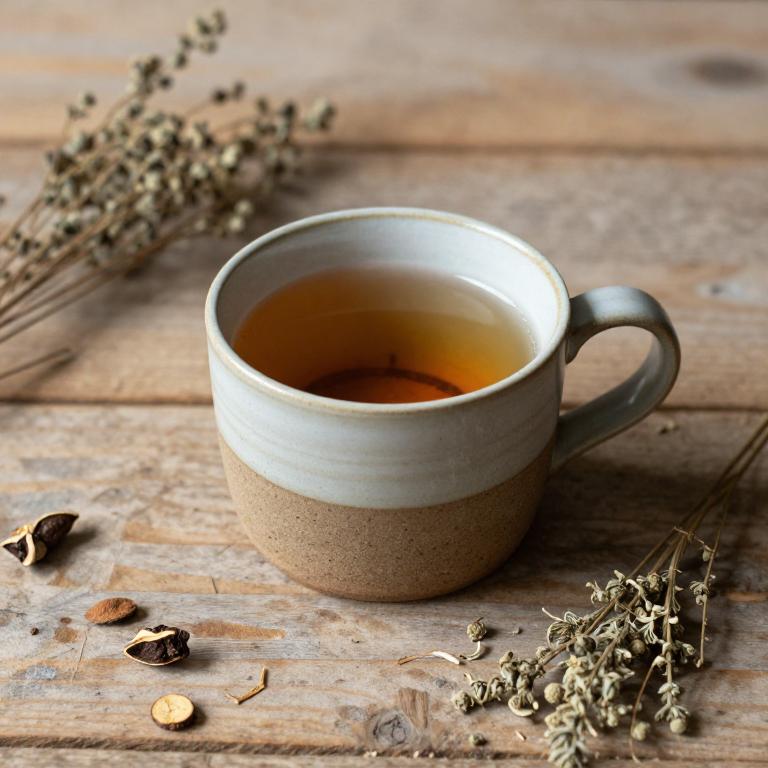10 Best Herbal Teas For Hiatus Hernia

Herbal teas can be a gentle and natural way to support digestive health for individuals with hiatus hernia, as they often contain soothing ingredients like chamomile, ginger, and licorice root.
These herbs may help reduce inflammation, ease heartburn, and promote relaxation of the esophageal sphincter, which is often compromised in hiatus hernia cases. However, it is important to consult with a healthcare provider before incorporating herbal teas into a treatment plan, as some herbs may interact with medications or exacerbate symptoms. While herbal teas are not a cure for hiatus hernia, they can be a complementary part of a holistic approach to managing symptoms.
Overall, choosing mild, anti-inflammatory herbal teas may offer relief and comfort for those seeking natural remedies for their condition.
Table of Contents
- 1. Chamomile (Matricaria chamomilla)
- 2. Fennel (Foeniculum vulgare)
- 3. Camellia (Camellia sinensis)
- 4. Thistle (Silybum marianum)
- 5. Stinging nettle (Urtica dioica)
- 6. Licorice (Glycyrrhiza glabra)
- 7. Cumin (Cuminum cyminum)
- 8. Common grape (Vitis vinifera)
- 9. Ceylon cinnamon (Cinnamomum verum)
- 10. Yarrow (Achillea millefolium)
1. Chamomile (Matricaria chamomilla)

Matricaria chamomilla, commonly known as chamomile, is a popular herbal tea often used for its calming and digestive properties.
While it is widely recognized for its ability to soothe anxiety and promote sleep, it may also offer relief for individuals suffering from hiatus hernia due to its anti-inflammatory and muscle-relaxing effects. Chamomile contains compounds like apigenin, which can help reduce inflammation in the gastrointestinal tract and ease the discomfort associated with reflux symptoms. However, it is important to note that chamomile may not be suitable for everyone, especially those with allergies or interactions with certain medications.
As with any herbal remedy, it is advisable to consult a healthcare professional before incorporating chamomile tea into a treatment plan for hiatus hernia.
2. Fennel (Foeniculum vulgare)

Foeniculum vulgare, commonly known as fennel, is often used in herbal teas to support digestive health, including the management of hiatus hernia symptoms.
The essential oils in fennel, particularly anethole, have mild antispasmodic and anti-inflammatory properties that may help reduce the discomfort associated with acid reflux and heartburn, which are common in individuals with hiatus hernia. When consumed as a tea, fennel can soothe the digestive tract and promote the relaxation of the lower esophageal sphincter, potentially alleviating some of the pressure and irritation caused by the hernia. However, it is important to consult with a healthcare professional before using fennel tea, especially if you are on medication or have other underlying health conditions.
While fennel may offer some relief, it should not replace medical treatment for hiatus hernia.
3. Camellia (Camellia sinensis)

Camellia sinensis, the plant from which green and black teas are derived, is often used in herbal teas for its potential digestive benefits.
While it is not a direct treatment for hiatus hernia, some herbal teas made from Camellia sinensis may help alleviate symptoms by promoting digestion and reducing stomach acid. However, it is important to note that caffeine and tannins in these teas can sometimes irritate the stomach lining, potentially worsening reflux symptoms in individuals with hiatus hernia. Therefore, it is advisable to consult a healthcare professional before incorporating Camellia sinensis-based teas into a dietary regimen for this condition.
Herbal teas made from Camellia sinensis should be consumed in moderation and paired with lifestyle adjustments for optimal digestive health.
4. Thistle (Silybum marianum)

Silybum marianum, also known as milk thistle, is a herbal remedy often used in the form of tea to support digestive health.
While it is primarily known for its liver-protecting properties, some individuals use silybum marianum herbal tea to alleviate symptoms associated with hiatus hernia, such as heartburn and indigestion. The tea is believed to help strengthen the lower esophageal sphincter, which can reduce the frequency of acid reflux episodes. However, it is important to note that there is limited scientific evidence directly linking silybum marianum to the treatment of hiatus hernia.
As with any herbal remedy, it is advisable to consult a healthcare professional before incorporating it into a treatment plan for hiatal hernia.
5. Stinging nettle (Urtica dioica)

Urtica dioica, commonly known as stinging nettle, has been traditionally used in herbal teas to support digestive health and may offer relief for individuals suffering from hiatus hernia.
The plant contains compounds that can help reduce inflammation and soothe the lining of the esophagus, potentially alleviating some of the discomfort associated with acid reflux and hiatal hernia. When prepared as a tea, stinging nettle is typically consumed warm, which may aid in promoting digestion and reducing bloating. However, it is important to consult with a healthcare provider before using stinging nettle tea, especially for those with existing medical conditions or who are taking medications.
While some people find it beneficial, individual responses to herbal remedies can vary, and it should not replace professional medical advice or treatment.
6. Licorice (Glycyrrhiza glabra)

Glycyrrhiza glabra, commonly known as licorice root, has been traditionally used in herbal teas to support digestive health, including potential benefits for individuals with hiatus hernia.
The root contains compounds like glycyrrhizin, which may help reduce inflammation and soothe the lining of the esophagus and stomach. When brewed into a tea, licorice root can provide a mild, sweet flavor while potentially easing symptoms such as heartburn and reflux, which are often associated with hiatus hernia. However, long-term use of licorice root tea should be approached with caution due to its potential to increase blood pressure and cause electrolyte imbalances.
It is advisable to consult with a healthcare provider before incorporating licorice root tea into a treatment plan for hiatus hernia.
7. Cumin (Cuminum cyminum)

Cuminum cyminum, commonly known as cumin, is a popular herb used in herbal teas to support digestive health, including relief for symptoms of hiatus hernia.
The essential oils in cumin, such as limonene and cineole, possess anti-inflammatory and carminative properties that may help reduce acid reflux and soothe the gastrointestinal tract. When brewed into a tea, cumin can aid in improving digestion and reducing bloating, which are common issues associated with hiatus hernia. However, it is important to consult a healthcare professional before using cumin tea, especially for individuals with existing medical conditions or those taking medications.
While cumin tea may offer some natural relief, it should not replace medical treatment for severe or persistent hiatus hernia symptoms.
8. Common grape (Vitis vinifera)

Vitis vinifera, commonly known as the grape vine, is a plant that has been traditionally used in herbal medicine for its various health benefits.
While it is primarily known for its role in winemaking, certain parts of the Vitis vinifera plant, such as the leaves and berries, have been used to make herbal teas that may support digestive health. For individuals suffering from hiatus hernia, these teas may help alleviate symptoms by promoting digestion and reducing inflammation in the gastrointestinal tract. However, it is important to note that scientific evidence specifically linking Vitis vinifera herbal teas to the treatment of hiatus hernia is limited.
As with any herbal remedy, it is advisable to consult a healthcare professional before incorporating Vitis vinifera tea into a treatment plan for hiatus hernia.
9. Ceylon cinnamon (Cinnamomum verum)

Cinnamomum verum, commonly known as true cinnamon, is often used in herbal teas to support digestive health and may offer relief for individuals experiencing symptoms of hiatus hernia.
The essential oils in cinnamon, particularly cinnamaldehyde, have anti-inflammatory and antimicrobial properties that can help reduce irritation in the gastrointestinal tract. While there is limited scientific evidence specifically linking cinnamon tea to the treatment of hiatus hernia, its soothing effects on the digestive system may help alleviate heartburn and bloating associated with the condition. Some studies suggest that cinnamon may enhance stomach emptying and reduce gastric acid secretion, which could be beneficial for those with reflux-related symptoms.
However, it is important to consult a healthcare provider before using cinnamon tea as a complementary therapy for hiatus hernia, especially if you have other medical conditions or are taking medications.
10. Yarrow (Achillea millefolium)

Achillea millefolium, commonly known as yarrow, has been traditionally used in herbal medicine for its anti-inflammatory and digestive properties.
While it is not a primary treatment for hiatus hernia, some herbalists suggest that yarrow tea may help alleviate symptoms by reducing stomach acid and soothing the lining of the esophagus. The tea is believed to support the digestive system and may help with bloating and indigestion often associated with hiatus hernia. However, it is important to consult a healthcare professional before using yarrow, as it can interact with certain medications and may not be suitable for everyone.
Despite its potential benefits, yarrow should be used as a complementary therapy rather than a standalone solution for hiatus hernia.